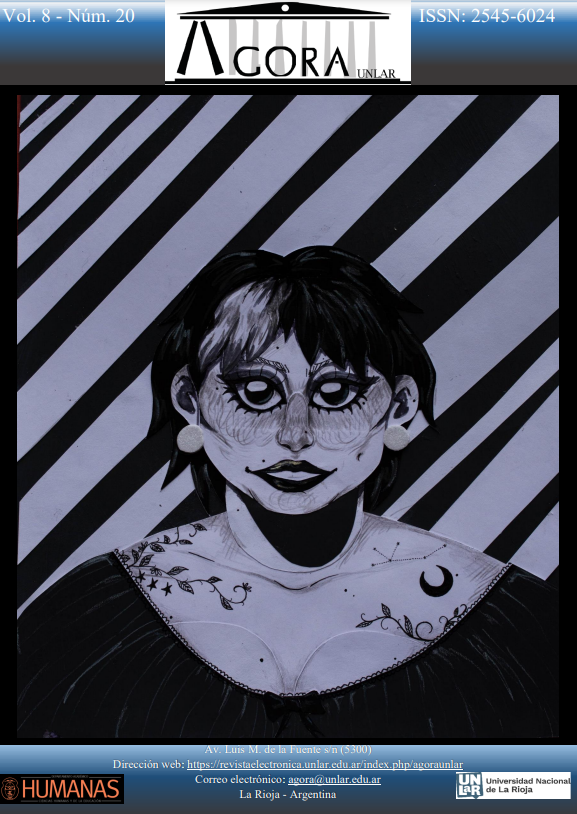Autoethnographic research in university: a form of resistance to algorithmic governmentality
Keywords:
education, autoethnographic research, technology of the self, algorithmic governmentality, attentionAbstract
The modulation of behaviors (Deleuze, 2006) must be thought at present within the framework of algorithmicgovernmentality. To understand and modify the forms of subjectivation of algorithmic culture, it is necessary toanalyze the practices that the attention economy and engineering generate through the smartphone (Touza,2020) and rethink how the technologies of the self-operate within this framework (Foucault, 1990). In this sense,I present and base an autoethnographic research process on digital culture in the Bachelor of SocialCommunication (UNCuyo) carried out during the first semester of 2022. Through a series of decentering exercises framed in the final practical work, the research The purpose of the autoethnographic study was foruniversity students to denature and objectify their own practices -individual and group- with digital media in orderto reconsider possible collective transformations in the modes and rhythms of attention. Some of the challengesinvolved in researching digital culture will be introduced, particularly starting undergraduate students in their firstexperiences in the Seminar on Informatics and Society. In addition, the autoethnographic research proposal(Chang, 2008) articulated to the matter will be presented and described. Finally, the results of the process will bepresented: the partial denaturation of the practices with the mobile phone, the validity and limitations of theperspective of the technologies of the self to think about digital culture and the affective tensions andambivalences in the transformations in the ways of subjectivation resistant to algorithmic governmentality.Downloads
Published
2023-12-01
Issue
Section
ARTÍCULOS DE INVESTIGACIÓN O REVISIÓN TEÓRICA





